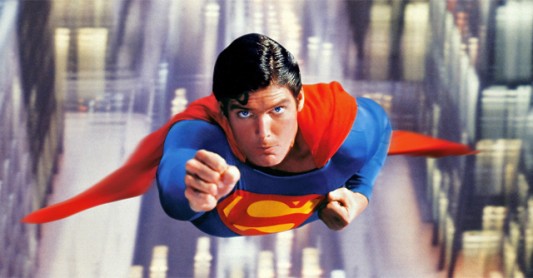In 1978, a comic-book superhero did something movie critics never expected possible: he became believable. The movie was about the first and most iconic comic book superhero, Superman. Though it’s seems blatantly obvious that the Superman story could make for a great movie, the road to success was problematic. These days, superhero movies may come out every few months, if not weeks, but folks in Hollywood once turned their perfectly sculpted noses up at the idea of superhero movies. They also had fairly good reasons for their doubts.
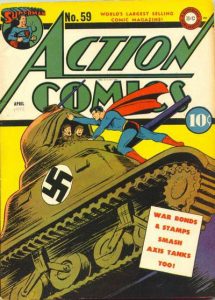
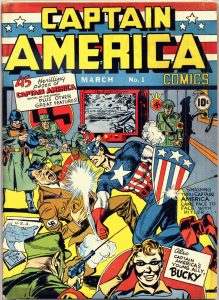 Comic book superheroes first found popularity in the late 30s, and especially as inspirations of hope during WWII. Comic books of this early era primarily appealed to children. Over the next decades, translations to other media also appealed to children. There was a live-action Superman movie and TV series in the 50s, with special effects about as limited as Superman bouncing from a trampoline out windows. Cartoons from Marvel and DC especially gained steam in the 60s and 70s. Often as part of Saturday morning lineups, superhero cartoons were seen as the stuff of toys, pajamas, and kids eating cereal in front of the TV. The cultural belief that only kids liked comics was beginning to change though. Partly thanks to Stan Lee in the 60s, comics broadened their appeal, but weren’t something mainstream adults knew much about. One thing Hollywood still had against making a superhero movie in the 70s was the old idea that superheroes were meant for children.
Comic book superheroes first found popularity in the late 30s, and especially as inspirations of hope during WWII. Comic books of this early era primarily appealed to children. Over the next decades, translations to other media also appealed to children. There was a live-action Superman movie and TV series in the 50s, with special effects about as limited as Superman bouncing from a trampoline out windows. Cartoons from Marvel and DC especially gained steam in the 60s and 70s. Often as part of Saturday morning lineups, superhero cartoons were seen as the stuff of toys, pajamas, and kids eating cereal in front of the TV. The cultural belief that only kids liked comics was beginning to change though. Partly thanks to Stan Lee in the 60s, comics broadened their appeal, but weren’t something mainstream adults knew much about. One thing Hollywood still had against making a superhero movie in the 70s was the old idea that superheroes were meant for children.
Hollywood just seemed to think audiences could never accept a superhero as anything except far-fetched. So when a production company did make a superhero movie in the 60s, they turned it into a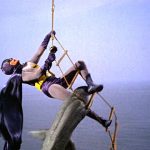 joke. Batman had originally been a fairly dark comic. The 1966 movie and TV show that followed, was campy and rather funny, but also helped cast a lingering cloud that influenced what Hollywood and viewers came to expect of live-action superheroes. The campy-superhero formula worked.
joke. Batman had originally been a fairly dark comic. The 1966 movie and TV show that followed, was campy and rather funny, but also helped cast a lingering cloud that influenced what Hollywood and viewers came to expect of live-action superheroes. The campy-superhero formula worked.
There were some other attempts to make superhero movies outside Hollywood. There were low-budget foreign films, as well as poorly made movies with some form of exploitation attachable: blacksploitation, sexploitation, etc. These movies didn’t much make a dent in what Hollywood seemed interesting in developing. Besides, by the mid 70s, superheroes seemed to be finding a comfortable enough home.
In 1975, Wonder Woman premiered on TV and was popular without needing to be campy or geared at 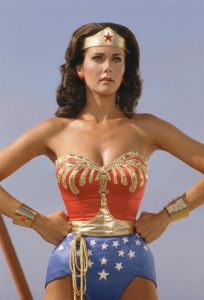 kids. Males, in particular, especially seemed to like Wonder Woman. While DC enjoyed TV popularity, Marvel seemed eager to get in on the action. From 1977-79, Marvel tested waters with made for TV movies. Spider-Man’s suit looked like pajamas. Doctor Strange’s special effects were about as advanced as a camera flash. I personally think Marvel’s worst attempt was Captain America—where the good captain looks
kids. Males, in particular, especially seemed to like Wonder Woman. While DC enjoyed TV popularity, Marvel seemed eager to get in on the action. From 1977-79, Marvel tested waters with made for TV movies. Spider-Man’s suit looked like pajamas. Doctor Strange’s special effects were about as advanced as a camera flash. I personally think Marvel’s worst attempt was Captain America—where the good captain looks 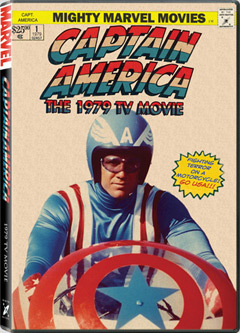 like a crazy patriotic highway patrolman. Yes, Marvel was responsible for crap while DC worked on a masterpiece…go figure. Marvel finally found a popular series with The Incredible Hulk in ’77. (Speaking of, the name of Bruce Banner was changed to David Banner for the show because producers feared “Bruce” sounded gay…really!) With all these shows on TV, folks in Hollywood had to also consider if anyone would pay to see a superhero considering the availability of superheroes on TV.
like a crazy patriotic highway patrolman. Yes, Marvel was responsible for crap while DC worked on a masterpiece…go figure. Marvel finally found a popular series with The Incredible Hulk in ’77. (Speaking of, the name of Bruce Banner was changed to David Banner for the show because producers feared “Bruce” sounded gay…really!) With all these shows on TV, folks in Hollywood had to also consider if anyone would pay to see a superhero considering the availability of superheroes on TV.
Keep in mind also why Hollywood didn’t seem to need superhero movies in the 70s. Star Wars had come out in ’77, Jaws a few years before, Rocky in ’76, and Close Encounters of the Third Kind in ’78. The 70s were full of famous movies praised by critics. These original and creative movies were helping revolutionize what people thought could be done in movies.
In referring to Hollywood as an entity full of doubts, I mostly mean that production companies wanted to recoup the costs in making a film. Naturally, a superhero movie would come with expenses. Critics were another matter to keep in mind, for the general consensus from them wasn’t high praise for what they had seen on TV or in low-budget exploitation or foreign films. One of the biggest tells about doubts for the Superman movie’s plausibility was that many big name actors like Paul Newman, Dustin Hoffman, Burt Reynolds, etc. turned the role down. Christopher Reeve was actually pretty low on the list of desirables.
Casting was only one snag in filming. There are contestable reports about the script, originally written by Mario Puzzo of The Godfather fame, but apparently rewritten several times after. Special effects posed a problem, for the director Richard Donner knew the utter importance of the movie looking realistic. So, production went over budget. There were other creative arguments and apparently Marlon Brando problems—one example is that he often wanted his co-stars to tape cue cards with his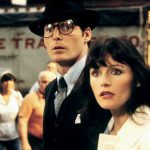 lines on their forehead so he wouldn’t have to memorize anything. The first movie and much of the sequel were filmed in tangent. The film’s release got pushed back a few times, and with so many negative rumors in production, the movie seemed doomed. If there was one hero who could turn naysayers and doubters around, it was Superman.
lines on their forehead so he wouldn’t have to memorize anything. The first movie and much of the sequel were filmed in tangent. The film’s release got pushed back a few times, and with so many negative rumors in production, the movie seemed doomed. If there was one hero who could turn naysayers and doubters around, it was Superman.
Superman joined other 70s movies in pushing boundaries of what people thought plausible. The cast is extraordinary, with Margot Kidder portraying a confident Lois Lane—every bit a great reporter aside from not being able to see through the disguise of black glasses. Christopher Reeve really captures the duality of the character, seeming like a nervous and nerdy Clark Kent, and a powerful Superman. By today’s standards, the movie doesn’t have a ton of action, but it doesn’t need it. The characters and the story are so interesting and endearing that it is no wonder this movie was a huge hit.
There it was then, a contradiction to everything Hollywood expected of a superhero movie. But the magic Superman captured wasn’t going to last. The rise of the superhero movie soon fell like Superman getting pelted in the head by a chunk of kryptonite. Come back next time, for part 2 where I’ll look at the fall and eventual rerise of serious superhero movies.
